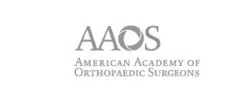Shoulder pain and dysfunction can significantly impact your daily life, making it difficult to perform even simple tasks. For those with severe shoulder issues, shoulder replacement surgery can be a life-changing solution. There are several types of shoulder replacement surgeries, each with its own advantages and disadvantages. Understanding these options can help you make an informed decision about the best treatment for your condition.
Total Shoulder Replacement (Arthroplasty)
Pros:
- Comprehensive Relief: Total shoulder replacement addresses both the ball (humeral head) and socket (glenoid) parts of the shoulder joint, providing comprehensive pain relief and improved function.
- High Success Rate: This surgery has a high success rate for patients with severe arthritis or significant joint damage.
- Long-Lasting Results: The prosthetic components used in total shoulder replacement are durable and can last for many years.
Cons:
- Extended Recovery Time: Recovery can be lengthy, often requiring several months of rehabilitation.
- Potential Complications: As with any surgery, there is a risk of complications such as infection, nerve damage, or prosthesis issues.
- Not Ideal for All Conditions: This procedure may not be suitable for patients with severe rotator cuff damage.
Partial Shoulder Replacement (Hemiarthroplasty)
Pros:
- Less Invasive: Hemiarthroplasty is less invasive than total shoulder replacement, as it involves only the replacement of the humeral head.
- Quicker Recovery: Patients typically experience a faster recovery time compared to total shoulder replacement.
- Good Option for Specific Conditions: This surgery is beneficial for patients with intact shoulder sockets and specific conditions like fractures.
Cons:
- Limited Pain Relief: It may not provide the same level of pain relief and functional improvement as total shoulder replacement.
- Wear on the Natural Socket: Over time, the natural socket may experience wear, potentially leading to additional issues.
Reverse Shoulder Replacement
Pros:
- Effective for Rotator Cuff Tears: Reverse shoulder replacement is designed for patients with severe rotator cuff tears, where conventional shoulder replacement may not be effective.
- Improved Stability: This procedure provides better shoulder stability and allows for the use of different muscles to move the arm.
- High Success Rate for Specific Cases: It is particularly successful in treating complex shoulder conditions and chronic shoulder dislocations.
Cons:
- Complex Procedure: It is a more complex surgery and requires a surgeon with specialized training and experience.
- Potential for Limited Range of Motion: While it offers improved stability, some patients may experience a limited range of motion post-surgery.
- Higher Risk of Complications: There is a slightly higher risk of complications compared to other shoulder replacement surgeries.
Shoulder Resurfacing
Pros:
- Bone Preservation: This procedure preserves more of the patient’s natural bone structure.
- Suitable for Younger Patients: It’s a good option for younger patients who may require a future revision surgery.
- Less Invasive: Shoulder resurfacing is generally less invasive than traditional shoulder replacements.
Cons:
- Limited Long-Term Data: There is less long-term data available on the success and durability of shoulder resurfacing compared to more established procedures.
- Not Suitable for Severe Damage: It may not be appropriate for patients with extensive shoulder damage or advanced arthritis.
Choosing the right shoulder replacement surgery depends on various factors, including the specific condition of your shoulder, your age, activity level, and overall health. It is essential to consult with an experienced orthopedic surgeon to discuss your options and determine the best course of action. Each type of shoulder replacement surgery has its pros and cons, and understanding these can help you make an informed decision to restore your shoulder function and improve your quality of life.
Learn more about our shoulder surgery options, here.
See what past patients are saying, here.















